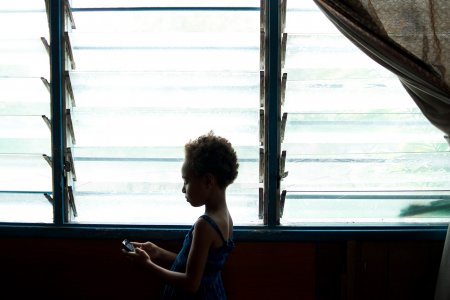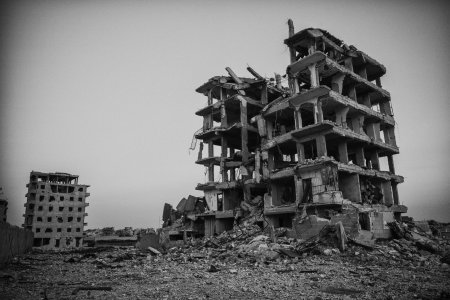
Motivations for mass violence: different interpretations
Nicolas Mariot
The conference – debate, was held on Thursday, October 3rd, 2019, at 6 pm, at MSF, 8 rue Saint Sabin.
What turns ordinary men into killers? The CRASH team organized a conference – debate with the sociologist and historian Nicolas Mariot, author of an article entitled « Faut-il être motivé pour tuer ? Sur quelques explications aux violences de guerre » (Genèses, n°53, 2003, p. 154-177) and books such as “Face à la persécution. 991 Juifs dans la guerre" (with Claire Zalc, Paris, Odile Jacob, 2010), “Tous unis dans la tranchée ? 1914-1918, les intellectuels rencontrent le peuple" (Paris, Seuil, 2013).
Nicolas Mariot presented two different interpretations of motivations for mass violence in the 20th century, drawn from a series of studies and surveys on the subject.
The first interpretation is culturalist. It suggests that massacres are motivated by hate due to racism, antisemitism, nationalism, fundamentalism, etc. This suggestion that the motivation for killing is rooted in a culture of hate has convinced a broad public. Some journalists and political personalities find scientific credibility in a vision of the world that reduces mass violence (in Syria, Central African Republic and South Sudan) to identity-based conflicts between radicalised groups opposed to each other on the simple basis of cultural, ethnic and religious differences.
The second interpretation is situational. It looks at the specific places and times at which massacres occurred. Without denying the role played by fervour, it highlights the ability of political rationales, group effects and collective conditioning to turn ordinary men into killers: pressure from groups of “friends”, local or family solidarity, micro-local rivalries, etc.
These subjects are relevant to the analyses of situations in which we work.
To cite this content :
Nicolas Mariot, “Motivations for mass violence: different interpretations”, 3 octobre 2019, URL : https://msf-crash.org/en/conferences-debates/motivations-mass-violence-different-interpretations
If you would like to comment on this article, you can find us on social media or contact us here:
ContributePast events
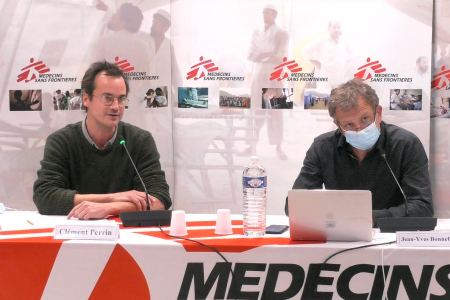 Conference
Conference
Another approach to well-being at work
12/09/2021 - 06:30 PM 08:30 PMThe members of the Crash were very happy to welcome you all to this new conference-debate with occupational psychologists Yves Clot and Jean-Yves Bonnefond, two of the authors of “Le prix du travail bien fait – La coopération conflictuelle dans les organisations” (Paris, La Découverte, 2021 ; co-written with Antoine Bonnemain and Mylène Zittoun).
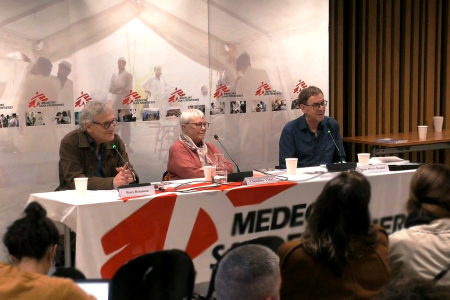 msf
Conference
msf
Conference
Book launch event - Violences extrêmes. Enquêter, secourir, juger République démocratique du Congo, Rwanda, Syrie
11/17/2021 - 06:30 PM 08:30 PMWe were very happy to welcome two authors of the book: sociologist (CNRS) and Crash scientific committee member Claudine Vidal, and Jean-Hervé Bradol, doctor, former President of the French section of MSF and current director studies at the Crash, for the launching event of the newly-published book “Violences extrêmes. Enquêter, secourir, juger République démocratique du Congo, Rwanda, Syrie” (Éditions de la Maison des sciences de l’homme, Paris 2021). The event was hosted by Rony Brauman.
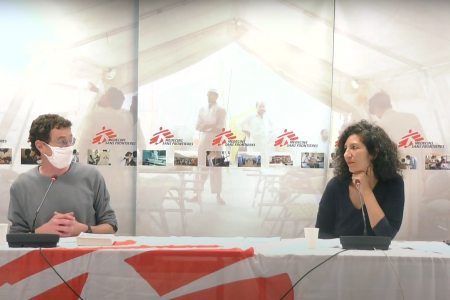 Conference
Conference
Asylum and exile. A history of the distinction between migrants / refugees
04/12/2021 - 06:30 PM 08:30 PMOn April 12 2021 we had the great pleasure of hosting a virtual CRASH conference with political scientist and sociologist Karen Akoka, fresh from her publication in November of “Asylum and Exile. A History of the Refugee/Migrant Distinction" (La Découverte, 2020). The author described and analyzed the trajectory of OFPRA, the French institution founded in 1952 and responsible for granting refugee status; she provided an insight into how the history of the distinction between migrants and refugees was established in France.
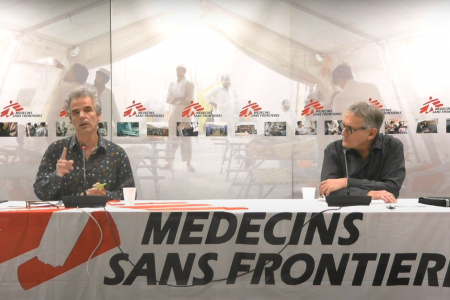 Conference
Conference
Clinical trials, between science and financial and academic interests
10/08/2020 - 06:00 PM 08:00 PMPierre Chirac, pharmacist and editor of the journal Prescrire, presented his analysis of the pharmaceutical industry's influence strategies and the special interests of university hospital researchers, their consequences on the reliability of drug information and the means now required to rectify a harmful situation.
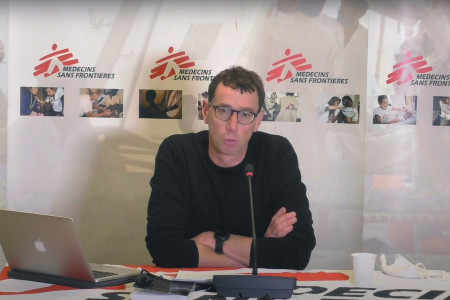 Conference
Conference
The quantification of needs
12/10/2020 - 06:00 PM 08:00 PMCombining historical research and ethnographic investigations, the Africanist historian Joël Glasman plunges us into the factory of the homo humanitarianus, the average individual, on the basis of which "needs" and aid projects today are assessed. This conversation took place on December 10th 2020, during a conference-debate at Crash.
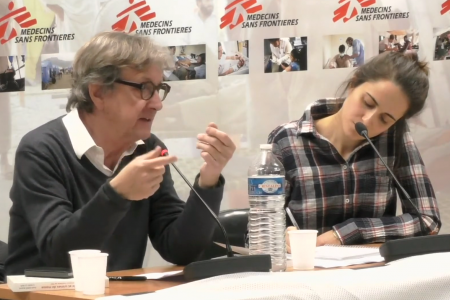 Conference
Conference
Territories: the illusion of identity
12/16/2019 - 06:00 PM 08:00 PMConference-debate on Monday 16 December 2019, 6-8pm in the 1st floor meeting room at MSF, 14-34 avenue Jean Jaurès 75019 Paris. Streaming and simultaneous translation into English available.
Can we talk about the specificities of the Middle East, Iran or the Mediterranean without reducing these territories to a culture or religion? On December 16, 2019, the CRASH team organised a conference-debate with Jean-François Bayart, a French political scientist who has devoted his work to the sociology of the State and identity illusions.

